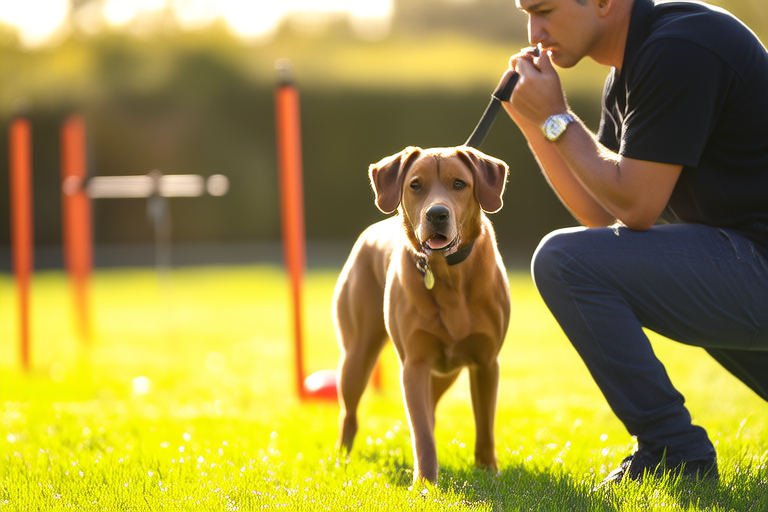How to Train Your German Shepherd Like a Pro: Expert Tips
Welcome to this comprehensive guide on how to train your German Shepherd like a pro. Whether you’re a first-time owner or an experienced handler, this article will provide you with expert tips to ensure your German Shepherd becomes a well-behaved, loyal companion.
Understanding German Shepherds’ Temperament
German Shepherds are known for their intelligence, loyalty, and protective nature. They are often used as working dogs, including police dogs and service animals. Their strong work ethic makes them highly trainable, but it’s important to understand their unique temperament.
German Shepherds can be aloof with strangers and very loyal to their families. Early socialization is crucial to prevent shyness or aggression towards unfamiliar people or situations. They have a strong desire to please their owners, which makes them eager learners. However, they can also be stubborn and independent, so patience and persistence are key during training.
Essential Basic Commands
Teaching your German Shepherd basic commands is the foundation of good behavior. Start with simple commands that can be easily reinforced with treats or praise. Here are some essential commands:
- “Sit”: Hold a treat above your dog’s nose and slowly move it back over his head. As he looks up, his bottom will naturally lower into a sit position. Say “sit” as he does so.
- “Stay”: Once your dog has mastered sitting, practice the stay command. Extend your hand in front of your dog while saying “stay.” Take a few steps back, then return to reward him for remaining in place.
- “Come”: Use a happy tone and say “come” when calling your dog. Praise and reward him immediately when he comes to you. Avoid using this command if you’re going to punish your dog; it can lead to confusion and reluctance to obey.
- “Leave It”: This command teaches your dog to ignore distractions. Place a treat in your closed hand and let your dog sniff it. When he tries to take it, say “leave it” and hold your hand steady until he stops trying. Reward him with a different treat from your other hand.
Advanced Training Techniques
Once your German Shepherd has mastered basic commands, you can move on to more advanced training techniques. These include teaching your dog to perform tricks, agility training, or even scent detection. Advanced training requires patience, consistency, and a deep understanding of your dog’s abilities.
For agility training, consider enrolling in a local class or purchasing an agility tunnel, jump bars, and weave poles. Scent detection training involves teaching your dog to locate specific items or scents, which can be particularly useful for search and rescue operations.
The Importance of Consistency and Positive Reinforcement
Consistency is crucial in dog training. Dogs thrive on routine and clear expectations. Establishing a consistent schedule for feeding, walking, and training sessions helps your German Shepherd understand what is expected of him. Positive reinforcement is equally important; rewarding good behavior encourages your dog to repeat it.
Positive reinforcement can be in the form of treats, praise, or playtime. Avoid punishment-based methods, as they can lead to fear, anxiety, and aggression. Instead, focus on rewarding desired behaviors and redirecting unwanted ones.
Common Challenges and Solutions
Training a German Shepherd can sometimes present challenges. Here are some common issues and solutions:
- Barking Excessively: Barking is a natural behavior for dogs, but excessive barking can be disruptive. Teach your dog the “quiet” command by waiting for a natural pause in barking, then rewarding the silence. Gradually increase the length of time your dog must remain quiet before receiving a treat.
- Poor Recall: If your dog doesn’t come when called, it could be due to lack of practice or distractions. Practice recall in a safe, distraction-free environment. Gradually increase the level of distraction as your dog becomes more reliable. Always end the session on a positive note.
- Chewing: Chewing is a normal behavior for puppies and young dogs, but it can become problematic if not addressed. Provide appropriate chew toys and supervise your dog closely. Redirect chewing on inappropriate items to approved toys.
Nutritional Needs Affecting Behavior
Your German Shepherd’s diet plays a significant role in his overall health and behavior. Poor nutrition can lead to behavioral issues such as hyperactivity, aggression, or lethargy. Consult with your veterinarian to determine the best diet for your dog based on his age, size, and activity level.
A balanced diet should include high-quality protein, healthy fats, and carbohydrates. Avoid foods with fillers, artificial preservatives, or colors. Some dogs may benefit from supplements such as omega-3 fatty acids for skin and coat health or probiotics for digestive health.
Tips for Socializing Your German Shepherd Effectively
Socialization is crucial for raising a well-adjusted German Shepherd. Proper socialization helps your dog feel comfortable in various environments and around different people and animals. Start socializing your puppy early, ideally between 3 and 14 weeks of age, when they are most receptive to new experiences.
Expose your German Shepherd to different environments, sounds, and people. Encourage positive interactions with children, other pets, and strangers. Puppy classes are a great way to socialize your dog in a controlled environment. Continue socialization throughout your dog’s life to maintain confidence and good behavior.
In conclusion, training your German Shepherd requires patience, consistency, and positive reinforcement. By understanding your dog’s temperament, teaching essential commands, and addressing common challenges, you can raise a well-behaved and loyal companion. Remember, every dog is unique, so adapt your training approach to suit your individual dog’s needs and personality.
